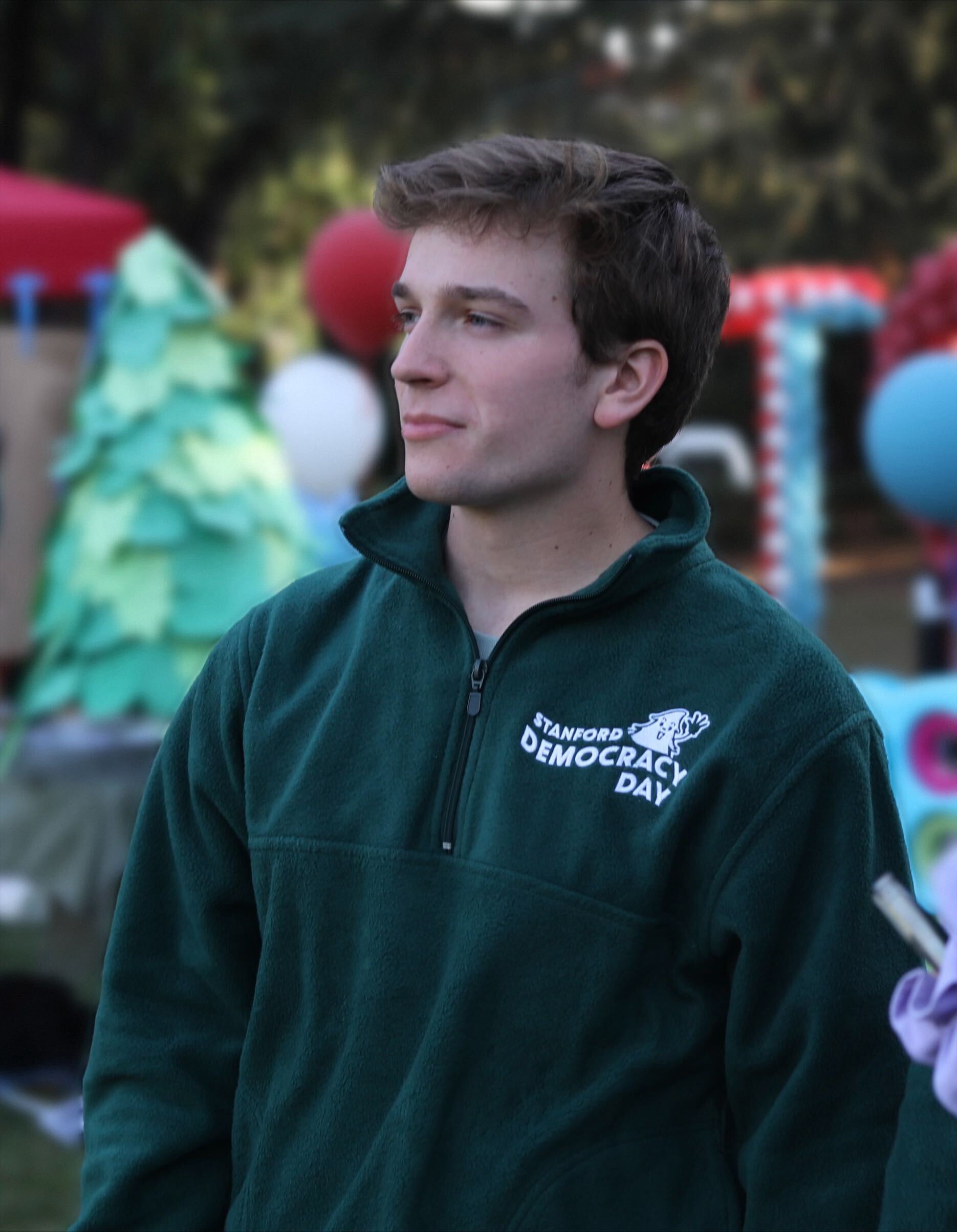Undergraduate Senator Jadon Urogdy ’27, who also serves as the co-chair of social science for Democracy Day, helped organize events such as the election night watch party, “All Vote, No Play” and a seminar on how the intersection of computer science and journalism helps promote democratic progress. In an interview with The Daily, Urogdy described his dual role as a senator Democracy Day organizer, elaborating on his initiatives to protect the Creative Writing program and decrease food costs on campus.
This interview has been edited for brevity and clarity.
The Stanford Daily [TSD]: As Democracy Day comes to an end, what are some of your main takeaways, and were there any challenges you faced?
Jadon Urogdy [JU]: I think there’s a lot of mixed emotions about the election. Whether we appreciate the results of the election or not, Democracy Day is an opportunity to come together and reconcile and to better understand perspectives across the aisle.
And I think one of the biggest takeaways I had was how much hope I have for the future and for the people on campus, and how much impact that these individuals have on the future. But at the same time, there is a lot of work that we still need to do, a lot of bridging the gap and it’s a great opportunity to reaffirm where we stand as a nation.
As for challenges, it would be a perfect world if everything went the way it was planned. We ran into some cancellations and to some switches in the agenda, but our Democracy Day team pushed on the best we could.
TSD: You mentioned the need to reconcile our differences and better understand perspectives. How would that look for you as an Undergraduate Senator?
JU: As a Senate, we come to a lot of disagreements — we have different visions of how we want to better our Stanford community, and how we can [be a] better body… but I think it’s the same idea that we all want what’s best for Stanford. So I think that’s something that we really hold close as a Senate: the ability to agree to disagree, but still preserve that vision for a wider Stanford community.
TSD: How do you plan on balancing diverse student interests and voices on campus so that everyone can be heard?
JU: We have been starting up our committee work, from the communications committee to the political action and housing… we have have the great opportunity to spend time talking to figureheads in all of these sectors. Whether it be with the Title IX Office or Residential & Dining Enterprise or the Graduate Student Council, we have been doing our best to engage with as many perspectives as possible and focus our efforts on what we’re passionate about through these committees.
We are also working on doing a tri-weekly email… from the ASSU that will be a breakdown of initiatives, and we hope that students will provide their feedback and criticisms on what we’re doing.
TSD: Does the Undergraduate Senate have any executive power in making policy changes?
JU: I think there is a preconceived notion about the ASSU, that we are instant change makers on campus, that we can pass legislation and that change will be put in place immediately. However, unfortunately, that is not the case. Our job is to pass a strong point of encouragement to the administration to change something, however, none of the work that we do through resolutions is strictly guaranteed to lead to tangible change.
TSD: What goals do you have for yourself as a senator for the future?
JU: My biggest initiative right now is working with the Creative Writing Program. We want to make sure that all students, no matter your major, no matter what you are passionate about doing, whether through academia or for fun, are not underrepresented or silenced. We hope to garner more support and and gain more transparency for what is happening with the termination of professors and downsizing of the Stanford Creative Writing Program.
I also want to make sure that the prices stay low for food that is purchased via dining dollars. As someone from a smaller town with less resources, and coming out to California, it has been a tough adjustment, and I understand that a lot of students are in similar positions as myself. That has definitely been a big concern among the student body to afford Stanford and afford the surrounding areas. So we are doing our best right now to make sure that students feel comfortable and feel like they can live and thrive at Stanford.
